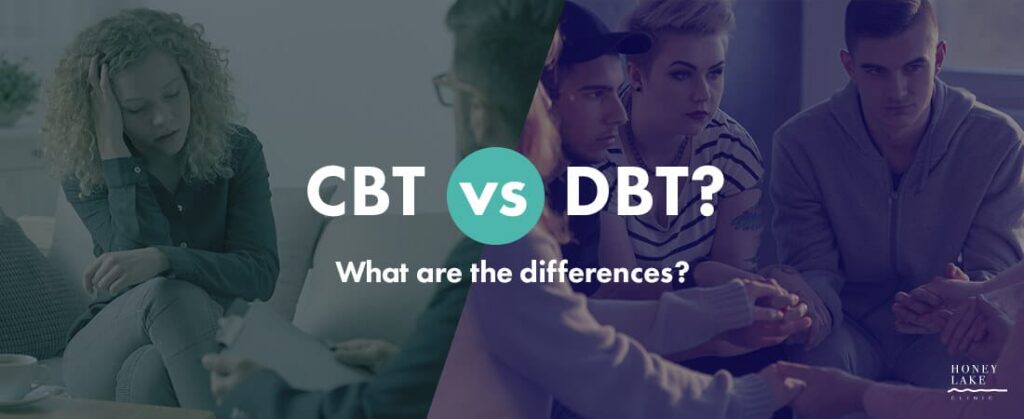CBT vs. DBT? What are the differences?
What is CBT?
Cognitive-behavioral therapy (CBT) and Dialectical behavior therapy (DBT) are two forms of psychotherapy or “talk therapy.” In both, you work with a mental health professional to learn more about the challenges you experience and learn skills to help you manage challenges on your own.
Cognitive-behavioral therapy (CBT) is one of the most commonly practiced forms of psychotherapy today. Its focus is on helping you learn how your thoughts affect their behaviors and feelings. For example, if you believe that people don’t like you (thought), you may avoid social situations (behavior) and feel lonely (feeling).
CBT is structured, short-term, goal-oriented and focused on the present. It involves education around the particular mental illness or challenge and how the illness or challenge affects you. You’ll learn and practice skills and strategies like problem-solving or realistic thinking to help you make changes in your thoughts, feelings, and behaviors.
CBT is an approach that has been proven effective for many different mental health problems, including depression, anxiety disorders, eating disorders and substance use problems.
What is DBT?
Dialectical behavior therapy (DBT) is based on CBT, with greater focus on emotional and social aspects—how you interact with others in different environments and relationships. DBT can help you cope with extreme or unstable emotions and harmful behaviors.
DBT mainly focuses on the psychosocial aspects. For instance, the emotional stimulation of some people in various situations (in relationships, with friends and family) is much higher than what is considered as normal. This can result in emotional swings such as extreme anger. Through DBT, you’ll learn necessary skills to cope with these emotional swings in an effective manner.
DBT has two components: individual sessions and also group sessions. Having group sessions is an added advantage in learning specific skills.
DBT was originally designed to help treat people with borderline personality disorder but is now used to treat a wide range of concerns, including eating disorders, self-harm and Post Traumatic Stress Disorder (PTSD).
What are the differences between CBT and DBT?
CBT is an effective, short term therapeutic method in counseling psychology which focuses mainly on identifying and changing the maladaptive behavior.
DBT is founded upon CBT. It mainly focuses on acceptance of those situations and circumstances in life that cannot be changed.
As with many talk therapies, it takes time and effort to enjoy the benefits of CBT and DBT skills. But once people master these skills with support from a therapist, they often find their new skills and strategies become second nature—they are tools that last a lifetime.
This is a lot to process. We can help. What’s right for you?
Whether cognitive-behavior therapy or dialectical behavior therapy is right for you is a determination best made in conjunction with an experienced therapist or mental health professional. Both types of psychotherapy have been proven to help with a wide range of mental health concerns.
At Honey Lake Clinic, CBT and DBT are two of many therapeutic approaches our team of licensed and experienced medical and mental health professionals may incorporate as a part of an overall treatment program to help you find renewed health and happiness.
